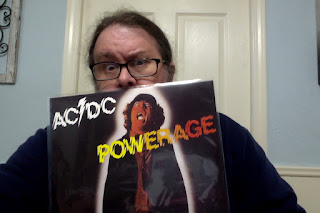What caused me to fall in love with the haunting music of Tangerine Dream was a trailer I saw for William Friedkin’s Sorcerer on Spectrum. Now many of you have heard this music used in other trailers for films that the music never appeared in. "Betrayal" is a standby used by many for years to punctuate the drama of the film they were trying to sell in a trailer.
Tangerine Dream's music is a synthesizer driven soundscape very similar to what John Carpenter creates for his films, and even more so, his Lost Themes albums. I own several Tangerine Dream albums including the soundtracks for Sorcerer and Thief, and some of their own commercially released LPs.
Their music is infinitely unique and definitely lends itself to films, to images, to facial expressions, to the works of many great artists. I mean, even in a film like Miracle Mile which has a different tone than many of the other films that Tangerine Dream's music has graced, the Dream makes it work . Miracle Mile is a soundtrack that I own and adore, but has a magic quite different, yet equally as powerful as their other works.
But I’ll never forget the power in that trailer for Sorcerer on Spectrum. It’s a fantastic film. I’ve seen it several times to this day. But Watching that two minute trailer, hearing that haunting music accompanying those images and those facial expressions and not knowing at all what was happening, I was transfixed before having even seen it.
Sorcerer is a great movie and I highly recommend anyone see it. Is it horror? No, but yes. Is it action? No, but yes. Is it crime?
No, but yes.
William Friedkin may have made The Exorcist, The French Connection, and To Live and Die in LA, but the one movie of his that has a cult following, however deserves much more, is indeed Sorcerer, which was based on Arnaud’s book The Wages of Fear .
If it wasn’t for Spectrum, I may have never discovered this film, Tangerine Dream, or the depths of Billy Friedkin .


















